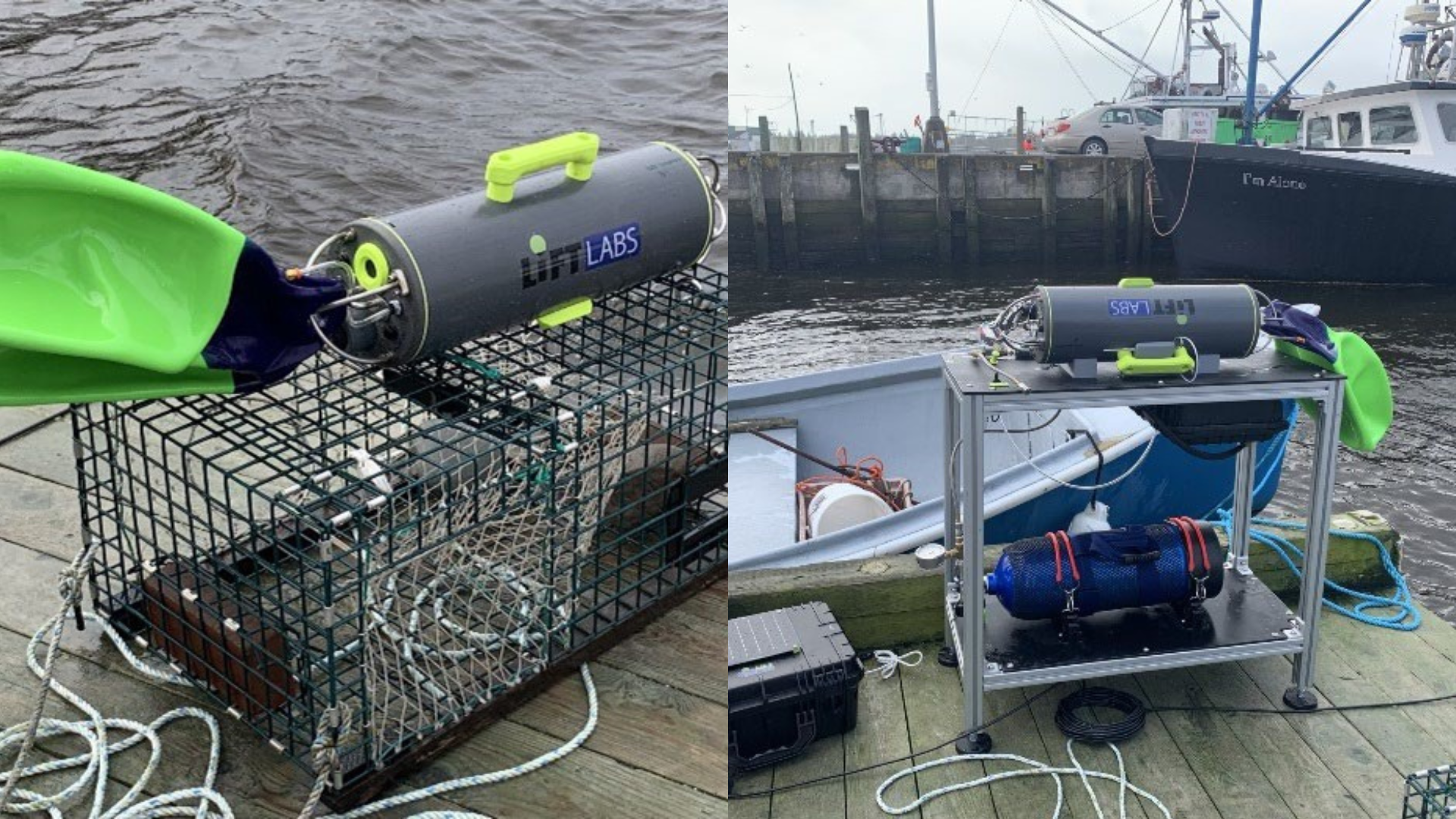A delegation of five Australian fishers, led by OceanWatch Australia’s Project Manager for Whale Entanglement Mitigation, Kristin Hoel, recently returned from an enlightening trip to the Ropeless Consortium in Halifax, Nova Scotia.
By Dempsey Ward
Supported by an education travel bursary from FRDC (FRDC Project 2023-072), the catalyst for the trip was a shared desire to protect both whales and their livelihoods. The group were on a mission to explore the latest advancements in ropeless fishing technology and its potential to change the fishing landscape.
Hailing from five diverse Australian fisheries, each with unique operating procedures and perspectives, the delegation acknowledged the need for tailored innovation that aligns with the specific needs of their respective sectors.

The trap fishers came from Queensland, New South Wales, South Australia, Victoria and Western Australia.
“Trap fishers all have their own practices – and conduct their operations very differently,” Kristin notes. “It was great to see FRDC supporting this opportunity to extend their knowledge by sending a broad range of fishers on this trip, recognising their differences and the importance this plays in conveying learned information back to their respective fishing communities.”
Their journey exposed them to numerous prototype options, offering a glimpse into a future where the reliance on ropes could be reduced and cutting-edge technology, applied. The Australian contingent witnessed firsthand the use of these systems in Canadian fisheries and were able to engage in discussions with experts to delve into the practical aspects of adoption.
Ropeless technology has quickly progressed out of necessity in North America, so it is more pressing for them to focus on finding alternative ways to protect endangered whale populations. Decline in whale populations has led to snap closures of some fisheries, which has heavily impacted fishing operations and livelihoods.
Australian whale populations aren't under the same level of threat as they are in some other oceans, and entanglements with set gear is relatively infrequent. However, as their populations continue to grow, the probability of entanglement increases, making it important for Australian fishers to look outside their current operating framework and explore potential options to help mitigate possible future entanglement issues.

Beyond the environmental benefits, the fishers were particularly intrigued by the additional functionalities offered by certain ropeless fishing gear, such as GPS location and range-finding capabilities. These features hold the promise of enhancing operational efficiency and reducing time spent locating gear at sea.
“Ropeless technology isn’t a one-size-fits-all solution and will take time to assess whether there are suitable options for Australian fisheries to adopt,” Kristin acknowledges.
“There will be challenges with testing and adaptation to Australian fisheries along the way, and going ropeless may not even be suitable on an industry-wide scale. But our fishers are open to exploring new possibilities and trialling solutions that may help safeguard both their livelihoods and the marine environment into the future.”
The delegation's commitment to exploring the utility of such gear is evident in their willingness to trial innovative technologies. Gear such as LiftLabs LLC will be trialled by two NSW fishers in the 2024 humpback whale migration season, and other systems may be trialled in NSW, Queensland and Tasmania next year.
The LiftLabs design is an acoustically inflated lift bag system that directly lifts a trap off the seafloor. It has many benefits, including the ability to drain the buoy and refill the tank in less than 1 minute – making it quite efficient for fishers.

Ocean Watch also plans to conduct one-on-one interviews with each fisher, gaining additional insights and personal perspectives regarding potential innovations to trial that may suit the needs of their respective fisheries. These will be available to view online early this year.
These findings will help shape Ocean Watch’s national workshop being held early this year (online participation will be available), allowing attendees to get actively involved in discussions around ropeless technologies and potential avenues forward to enhance and promote coexistence of whales and our Australian fisheries.
“Ropeless fishing is a very new space,” Kristin says. “By bringing together fishers, fisheries management and gear developers, we can foster innovation and explore the potential to adapt and adopt ropeless technology where useful, helping ensure a sustainable future for Australian trap fishers and our whale populations.”.
If you would like further information about the workshop, please contact Kristin Hoel at kristin@oceanwatch.org.au
Related FRDC Projects
FRDC-Project 2023-072: Educational travel trip for Ocean Trap and Line industry development to explore alternative fishing practices which help prevent TEP species interactions and ghost fishing





